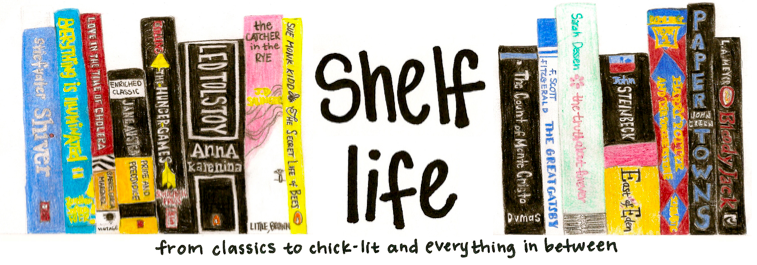By Veronica Roth
★★★★ ☆
Four Things I Liked About Divergent:
1. Tough as nails heroine
2. Dystopian Chicago
3. Four
4. Daredevil feats
Yet another strong series starter. I’ve been hearing great things about this book all year online, but because I didn’t want to make the commitment of actually buying it and because my campus library has a distinct shortage of recent YA releases, I didn’t get around to seeing what all the fuss was about it until now.
Beatrice – or Tris, as she soon becomes – grew up in Chicago, but not the Chicago we all know and love. This Chicago exists some unspecified number of years in the future and, aside from a couple key landmarks like the Sears tower, is unrecognizable. The city is divided into five factions (Candor, Abnegation, Dauntless, Erudite, and Amity), which are like a mixture of vocation and cult. You declare your faction at age 16, and after that your faction becomes your world. If you transferred factions from the one you grew up in (often seen as betrayal), you will no longer live with your family and will only visit them on rare occasions. In a last second decision that surprises everyone except the reader, Beatrice transfers from her family’s faction of Abnegation to the tough and fearless Dauntless. A ruthless and competitive initiation period follows before the initiates can be fully accepted into the faction. As Tris fights for a position in her chosen faction in a competition that blurs the line between even close friend and rival, she struggles with a secret about her identity that may threaten not only her chances at initiation but her life – and the fraying threads that hold her fractioned society together.
Divergent is everything that a good series debut should be: compelling, exciting, inventive. I read the majority of it in about 12 hours. And while I am a fast reader, to put aside all other forms of entertainment to read something that quickly is somewhat rare. But it’s not without its flaws. I felt like book spent too much time focused on the initiation trials which, while interesting, meant that not a ton of ground had been laid for the climaxing of the dystopian subplot, the part where all hell breaks loose. I didn’t feel like I had a very good grasp on the society in Roth’s dystopia – how it worked, why it was formed, what its problems were. Tris’s experiences in Dauntless were very exciting to read, but they didn’t feel very connected to the events unfolding in the society as a whole. Which would have been fine if that’s all the book was, but because the events in society at large became so important in the last chapters of the book, it certainly felt like a weakness that I, the reader, wasn’t better prepared for those events. Feeding the reader more information about the society would also have made the motive behind Roth’s dystopia more clear. Often when a writer creates a dystopia, they are critiquing some system or characteristic of our own society. But what exactly that might have been in Divergent was not clear.
Overall, though, Divergent proves to be a promising beginning to an exciting trilogy. I have the sequel on hold at the library.
Books Read This Year: 54
Top 100 Progress: 48/100


No comments:
Post a Comment